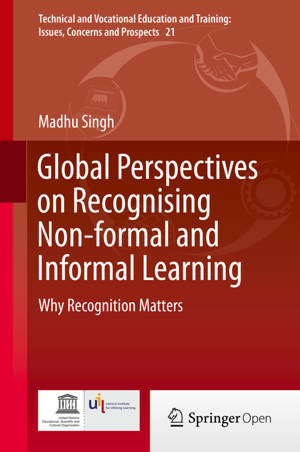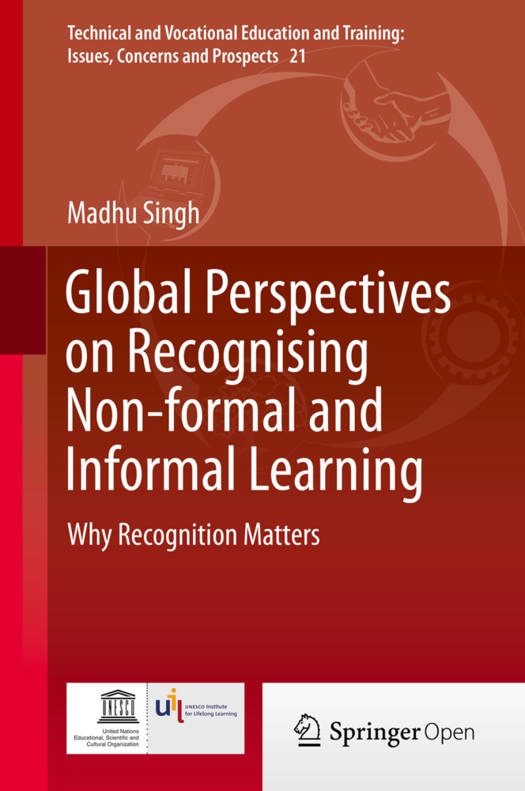
- Retrait gratuit dans votre magasin Club
- 7.000.000 titres dans notre catalogue
- Payer en toute sécurité
- Toujours un magasin près de chez vous
- Retrait gratuit dans votre magasin Club
- 7.000.000 titres dans notre catalogue
- Payer en toute sécurité
- Toujours un magasin près de chez vous
Global Perspectives on Recognising Non-Formal and Informal Learning
Why Recognition Matters
Madhu Singh
52,95 €
+ 105 points
Format
Description
This book deals with the relevance of recognition and validation of non-formal and informal learning education and training, the workplace and society. In an increasing number of countries, it is at the top of the policy and research agenda ranking among the possible ways to redress the glaring lack of relevant academic and vocational qualifications and to promote the development of competences and certification procedures which recognise different types of learning, including formal, non-formal and informal learning. The aim of the book is therefore to present and share experience, expertise and lessons in such a way that enables its effective and immediate use across the full spectrum of country contexts, whether in the developing or developed world. It examines the importance of meeting institutional and political requirements that give genuine value to the recognition of non-formal and informal learning; it shows why recognition is important and clarifies its usefulness and the role it serves in education, working life and voluntary work; it emphasises the importance of the coordination, interests, motivations, trust and acceptance by all stakeholders. The volume is also premised on an understanding of a learning society, in which all social and cultural groups, irrespective of gender, race, social class, ethnicity, mental health difficulties are entitled to quality learning throughout their lives. Overall the thrust is to see the importance of recognising non-formal and informal learning as part of the larger movement for re-directing education and training for change. This change is one that builds on an equitable society and economy and on sustainable development principles and values such as respect for others, respect for difference and diversity, exploration and dialogue.
Spécifications
Parties prenantes
- Auteur(s) :
- Editeur:
Contenu
- Nombre de pages :
- 220
- Langue:
- Anglais
- Collection :
- Tome:
- n° 21
Caractéristiques
- EAN:
- 9783319152776
- Date de parution :
- 25-06-15
- Format:
- Livre relié
- Format numérique:
- Genaaid
- Dimensions :
- 156 mm x 234 mm
- Poids :
- 517 g







